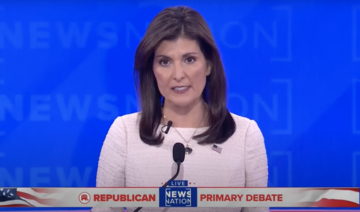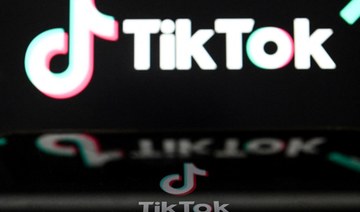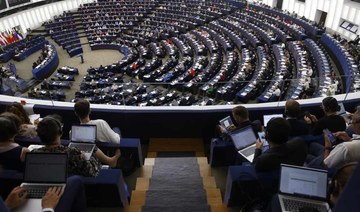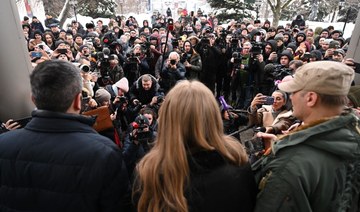JAKARTA: China’s TikTok has agreed to spend $840 million to buy most of Indonesian tech conglomerate GoTo’s e-commerce unit — a move that appears to allow it to restart its online shopping business in Southeast Asia’s largest economy.
It also said it will invest further in the business, Tokopedia, which is Indonesia’s biggest e-commerce platform, for a total outlay of $1.5 billion.
TikTok had been forced to close its relatively new e-commerce service, TikTok Shop, in Indonesia after the country banned online shopping on social media platforms in September, citing the need to protect smaller merchants and users’ data.
The new partnership will commence with a pilot period carried out in close consultation with and supervision by relevant regulators, the companies said in a joint statement.
“We are creating an Indonesian e-commerce champion, combining Tokopedia’s strong local presence with TikTok’s mass market reach and technological prowess,” GoTo CEO Patrick Walujo said in a statement.
“GoTo now sits on a much stronger foundation and we expect this partnership to bring many benefits not just for e-commerce, but for our on-demand services and fintech businesses as well,” he said.
GoTo’s businesses include ride-hailing, delivery and financial services.
Under the deal, TikTok, which is owned by China’s ByteDance, will buy 75.01 percent of Tokopedia and inject TikTok Shop’s Indonesia business into the enlarged Tokopedia entity.
Officials at Indonesia’s trade ministry did not respond to requests for comment.
Many of Indonesia’s more than 270 million people are active social media users and TikTok has been looking to translate its 125 million user base there into a significant source of e-commerce revenue.
TikTok Shop is currently available in only a few countries including the United States, Britain and Singapore, according to its website.
The deal will be concluded by the first quarter of 2024 and Tokopedia will receive a $1 billion promissory note from TikTok that can be used to fund working capital needs, the companies said.
Tokopedia competes with Shopee owned by Singapore-headquartered Sea and Lazada owned by Chinese e-commerce giant Alibaba.
It saw half-year gross revenue climb 14 percent to 4.5 trillion rupiah ($288 million) in August while its underlying loss narrowed sharply to 752 billion rupiah from 3.7 trillion rupiah a year ago.
Shares in GoTo, however, tumbled 13 percent on Monday — their biggest percentage decline in six months — as some investors took profits after the stock had rallied on expectations of a deal with TikTok.
Indonesia’s e-commerce industry is set to expand to be worth about $160 billion by 2030 from $62 billion this year, according to a report by Google, Singapore state investor Temasek Holdings and consultancy Bain & Co.
TikTok set to restart e-commerce in Indonesia with $1.5 bln Tokopedia investment
https://arab.news/weh54
TikTok set to restart e-commerce in Indonesia with $1.5 bln Tokopedia investment
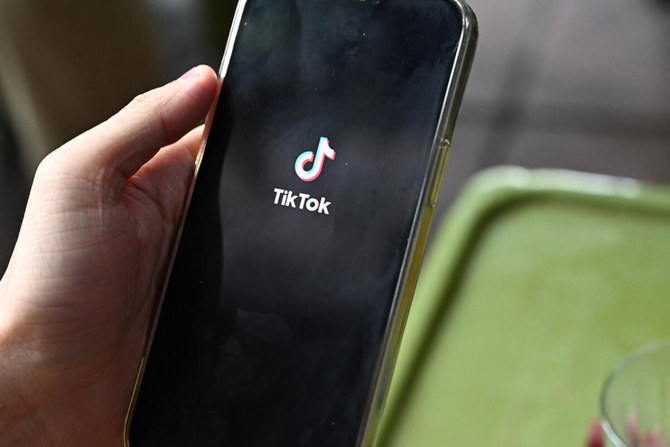
- Acquisition is driven by Indonesia's ban on online shopping through social media platforms
- TikTok will assume control of Tokopedia, GoTo’s e-commerce unit, during a pilot period in consultation with regulators
Report: Meta approved anti-Muslim political ads in India

- ICWI and Eko found Meta’s system failed to detect prohibited content in most cases
- Indian election sees surge in anti-Muslim, Hindu supremacist sentiment
LONDON: Tech giant Meta approved political advertisements on its platforms inciting violence and hate speech during India’s general election, a report released on Monday revealed.
The investigation, conducted by non-sectarian diasporic organization India Civil Watch International and corporate watchdog Eko, found that Meta, the parent company of Facebook and Instagram, allowed AI-manipulated political ads that spread disinformation and incited religious violence, particularly targeting Muslims.
The report found that Meta’s system failed to prohibit a series of inflammatory ads designed to mimic real-life scenarios, uploaded by ICWI and Eko.
The ads, submitted to Meta’s ad library, contained slurs towards Muslims in India, such as “let’s burn this vermin” and “Hindu blood is spilling, these invaders must be burned.”
Another ad featured Hindu supremacist language and false claims about political leaders, including an opposition leader allegedly wanting to “erase Hindus from India” and calling for their execution.
According to the report, all of the adverts “were created based upon real hate speech and disinformation prevalent in India, underscoring the capacity of social media platforms to amplify existing harmful narratives.”
Out of 22 ads submitted in English, Hindi, Bengali, Gujarati and Kannada, 14 were approved by Meta, while a further three were approved after minor tweaks that did not alter the overall provocative messaging.
Only five ads were rejected for violating Meta’s community standards on hate speech and violence.
The ads, which largely targeted Muslims, were immediately removed after approval by ICWI and Eko.
The organizations accused Meta of profiting from hate speech and failing to uphold its pledge to prevent AI-generated or manipulated content from spreading on its platforms during the Indian election.
Campaign spending for India’s elections, the largest and longest in the world, is estimated to reach $16 billion.
The report also claims that the approved ads violated India’s election rules, which ban election-related content 48 hours before polling begins and during voting.
Meta, which requires vetting approval for accounts running political ads, had already faced controversy during this year’s Indian elections.
A previous report by ICWI and Eko found that surrogate or “shadow” accounts aligned with political parties paid vast sums of money to disseminate unauthorized political ads on platforms.
Some approved accounts for running political ads were even up for sale in public Facebook groups with tens of thousands of members.
Many of these real ads endorsed Islamophobic tropes and Hindu supremacist narratives.
The tech giant has struggled for years with the spread of Islamophobic content on its platforms, raising concerns about Meta’s ability to enforce its policies and control the situation amid rising anti-Muslim sentiment in India.
Food delivery app HungerStation and Snapchat launch AR treasure hunt in Saudi Arabia

- Companies say the sponsored treasure hunt is a world first
- Great AR Hungerhunt is part of HungerStation rebranding campaign
LONDON: Food delivery app HungerStation has partnered with social media provider Snapchat to launch an immersive augmented reality treasure hunt on the platform.
The two companies said on Monday that the Great AR Hungerhunt, using Snapchat’s geofenced AR objects technology, is the first sponsored digital treasure hunt of its kind in Saudi Arabia and the world.
“Celebrating our rebranding with Snapchat marks a significant step in our journey of creativity and innovation,” said Mohammed Jifri, chief marketing officer of HungerStation.
“Through this partnership, we’re not just delivering food, but also delivering unforgettable digital experiences to our users.”

The initiative is part of HungerStation’s rebranding campaign following its $297 million acquisition by German multinational Delivery Hero in July 2023.
A leading food delivery app in Saudi Arabia, HungerStation unveiled its new brand identity in January.
HungerStation’s director of brand and communication, Ahmad Chatila, said the campaign merges technological innovation with marketing opportunities with the aim to connect the brand with youth by “offering a real-life experience and amazing game challenges.”
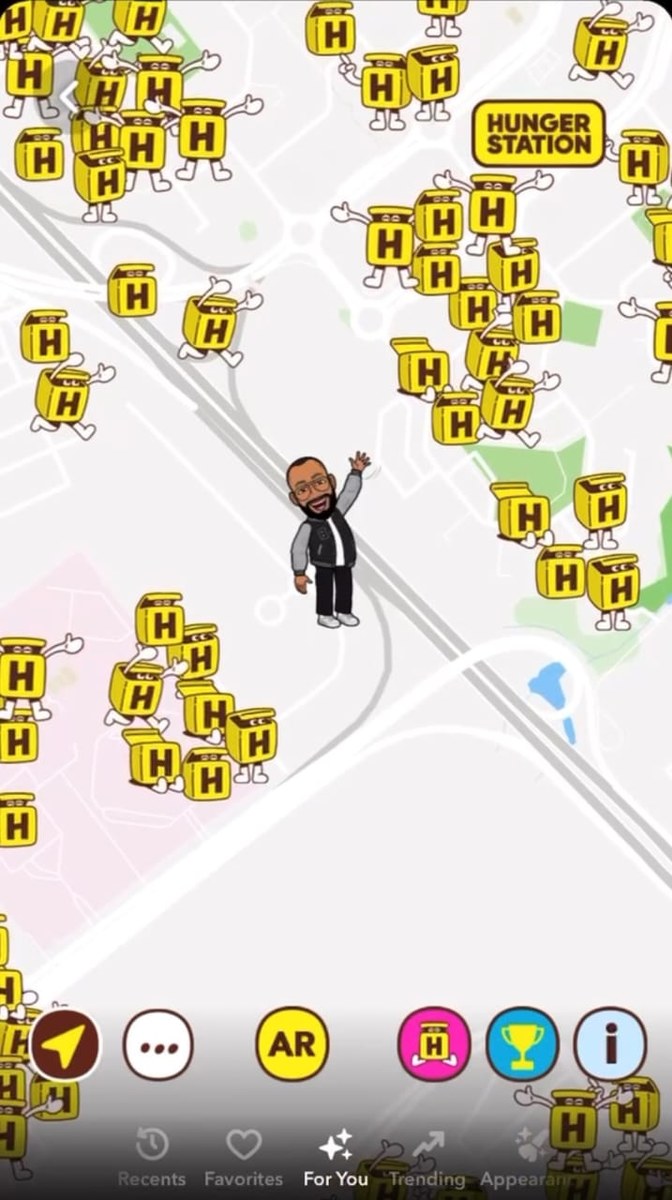
To participate, Snapchat users need to search for and collect HungerStation’s new branded boxes hidden around city maps to gain points using the AR map feature on Snapchat.
For users not based in Jeddah or Riyadh, a non-location minigame version is available that allows them to collect points too.
EU bans 4 more Russian media outlets from broadcasting in the bloc, citing disinformation

- The EU has already suspended Russia Today and Sputnik among several other outlets since February 2022
BRUSSELS: The European Union on Friday banned four more Russian media outlets from broadcasting in the 27-nation bloc for what it calls the spread of propaganda about the invasion of Ukraine and disinformation as the EU heads into parliamentary elections in three weeks.
The latest batch of broadcasters consists of Voice of Europe, RIA Novosti, Izvestia and Rossiyskaya Gazeta, which the EU claims are all under control of the Kremlin. It said in a statement that the four are in particular targeting “European political parties, especially during election periods.”
Belgium already last month opened an investigation into suspected Russian interference in June’s Europe-wide elections, saying its country’s intelligence service has confirmed the existence of a network trying to undermine support for Ukraine.
The Czech government has imposed sanctions on a number of people after a pro-Russian influence operation was uncovered there. They are alleged to have approached members of the European Parliament and offered them money to promote Russian propaganda.
Since the war started in February 2022, the EU has already suspended Russia Today and Sputnik among several other outlets.
Israeli soldiers post abusive videos despite army’s pledge to act: BBC analysis

- The BBC analyzed 45 photos and videos posted online by Israeli soldiers that showed Palestinian prisoners in the West Bank being abused and humiliated
LONDON: Israeli soldiers continue to post videos of abuse against Palestinian detainees despite a military pledge to take action against the perpetrators, analysis by the BBC has found.
The broadcaster said it had analyzed 45 photos and videos posted online by Israeli soldiers that showed Palestinian prisoners in the West Bank being abused and humiliated. Some were draped in Israeli flags.
Experts say the footage and images, which showed Palestinians being stripped, beaten and blindfolded, could breach international law and amount to a war crime.
The Israel Defense Forces said some soldiers had been disciplined or suspended for “unacceptable behavior” but did not comment on the individual cases identified by the BBC.
The most recent investigation into social media misconduct by Israeli soldiers follows a previous inquiry in which BBC Verify confirmed Israeli soldiers had filmed Gazan detainees while beating them and then posted the material on social platforms.
The Israeli military has carried out arbitrary arrests across Gaza and the West Bank, including East Jerusalem, since the Hamas attack on Oct. 7. The number of Palestinian prisoners in the West Bank has since risen to more than 7,060 according to the Commission of Detainees’ Affairs and the Palestinian Prisoner Society.
Ori Givati, spokesperson for Breaking the Silence, a non-governmental organization for Israeli veterans working to expose wrongdoing in the IDF, told the BBC he was “far from shocked” to hear the misconduct was ongoing.
Blaming “current far-right political rhetoric in the country” for further encouraging the abuse, he added: “There are no repercussions. They [Israeli soldiers] get encouraged and supported by the highest ministers of the government.”
He said this played into a mindset already subscribed to by the military: “The culture in the military, when it comes to Palestinians, is that they are only targets. They are not human beings. This is how the military teaches you to behave.”
The BBC’s analysis found that the videos and photos it examined were posted by 11 soldiers of the Kfir Brigade, the largest infantry brigade in the IDF. None of them hid their identity.
The IDF did not respond when the BBC asked about the actions of the individual soldiers and whether they had been disciplined.
The BBC also attempted to contact the soldiers on social media. The organization was blocked by one, while none of the others responded.
Mark Ellis, executive director of the International Bar Association, urged an investigation into the incidents shown in the footage and called for the IDF to discipline those involved.
In response to the BBC’s investigation, the IDF said: “The IDF holds its soldiers to a professional standard … and investigates when behavior is not in line with the IDF’s values. In the event of unacceptable behavior, soldiers were disciplined and even suspended from reserve duty.
“Additionally, soldiers are instructed to avoid uploading footage of operational activities to social media networks.”
However, it did not acknowledge its pledge to act on BBC Verify’s earlier findings in Gaza, according to the broadcaster.
4 journalists killed in Gaza as death toll climbs above 100

- 104 Palestinian media workers reported dead, along with 3 Lebanese and 2 Israelis
LONDON: The Gaza Media Authority on Thursday said that four journalists had been killed in an Israeli airstrike, bringing the total number of journalists killed in the conflict to more than 100.
The victims were identified as Hail Al-Najjar, a video editor at the Al-Aqsa Media Network; Mahmoud Jahjouh, a photojournalist at the Palestine Post website; Moath Mustafa Al-Ghefari, a photojournalist at the Kanaan Land website and Palestinian Media Foundation; and Amina Mahmoud Hameed, a program presenter and editor at several media outlets, according to the Anadolu Agency.
The Gaza Media Office said the four were killed in an Israeli airstrike, but did not provide additional details on the circumstances surrounding their deaths.
A total of 104 Palestinian journalists have been killed since the conflict began on Oct. 7. Two Israeli and three Lebanese media workers also have been killed.
The latest loss adds to the already heavy toll on media workers, with the Committee to Protect Journalists saying the Gaza conflict is the deadliest for journalists and media workers since it began keeping records.
Israel is continuing its offensive on Gaza despite a UN Security Council resolution demanding an immediate ceasefire.
On Thursday, South Africa, which has brought a case accusing Israel of genocide to the International Court of Justice, urged the court to order Israel to halt its assault on Rafah.
According to Gaza medical authorities, more than 35,200 Palestinians have been killed, mostly women and children, and over 79,200 have been injured since early October when Israel launched its offensive following an attack by Hamas.



